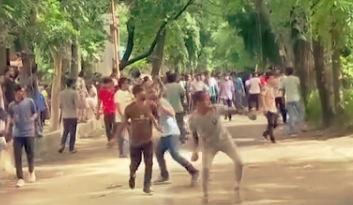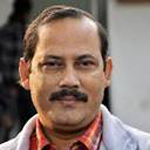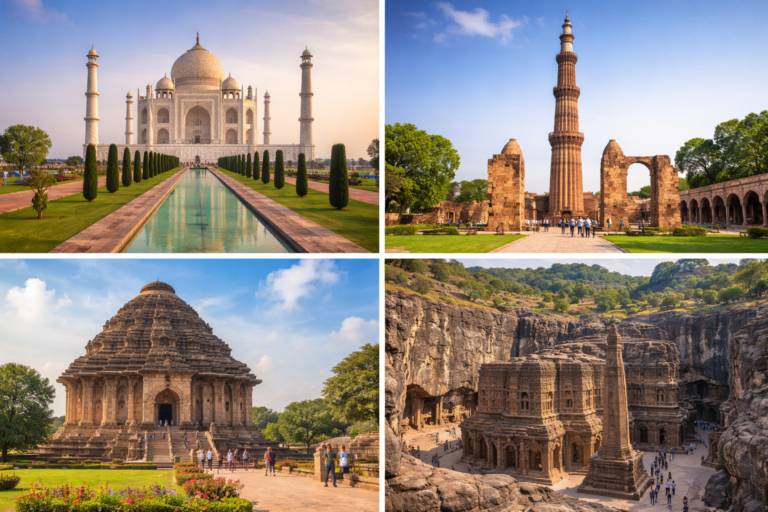
File photo of the mob violence in Bangladesh in July-August 2024
After the fall of the Sheikh Hasina-led Awami League government in Bangladesh, over 250 incidents of mob violence against religious minority families took place, the Bangladesh Hindu-Buddhist-Christian Oikya Parishad claimed. It termed the relentless attacks on minority houses, business units, and temples across Bangladesh unprecedented.
The Islamists chanted anti-Hindu slogans and asked the minorities to convert to Islam or leave the country, the Oikya Parishad stated, adding “It’s shocking that the Hindu families faced atrocities whenever there were elections as they were seen as potential supporters of Hasina’s Awami League.”
Prime Minister Narendra Modi, who wished Professor Muhammed Yunus for his new responsibility as the head of the interim government, urged him to ensure the safety and security of Hindus and other minorities in his country. India’s Minister for External Affairs, S Jaishankar, told the Indian Parliament that Hasina’s presence in India was a courtesy move after a short notice request. He stated that New Delhi was keeping a close eye on developments across the border.
Facing the heat of mob violence in the neighbouring country, the Indian government has formed a committee to monitor the situation arising on the Bangladesh border so that the safety of Indians, as well as Hindus, Buddhists, and other minorities in Bangladesh, could be ensured.
Bangladesh has witnessed massive protest demonstrations and mob violence since last month. In the middle of July 2024, nearly 200 protesters including students died in the violence, which was allegedly instigated by the police personnel and a large number of supporters of the then Prime Minister Sheikh Hasina’s Awami League.
Another series of movements in the last week of July resulted in the death of over 150 civilians which angered most of the people, who later came to the streets with a single demand that Hasina must resign. Finally, the longest-serving lady premier in the world had to bow down to the public pressure and quit. She soon thereafter fled to India.
After Hasina’s ouster, Bangladesh Army chief Waker-Uz-Zaman announced that an interim government would be formed, which was aimed to guide their election commission to conduct a national election within three months to hand over the power. The chief of Bangla armed forces fervently appealed to everyone to restrain from violent activities. Accordingly, an interim government headed by Nobel laureate Professor Muhammad Yunus was sworn in by Bangladesh President Muhammed Shahabuddin.
Meanwhile, the mob violence in Bangladesh also claimed the lives of five journalists in the country. The nationwide anti-quota movement in government jobs had already taken the life of Hasan Mehedi, who worked for Bangla digital media outlet Dhaka Times, as he was covering the clashes that erupted between the police forces and agitating students at Jatrabari area of Dhaka on July 18, 2024. He reportedly became the first journalist to be killed this year in Bangladesh and the 72nd journalist across the world since January 1, 2024. The same day, another journalist named Shakil Hossain, who worked for the Daily Bhorer Awaj newspaper, was killed while reporting the turmoil in the Gazipur locality.
On July 19, 2024, Abu Taher Mohammed Turab, who was associated with Daily Naya Diganta newspaper, received bullet injuries as the police fired on a procession in Sylhet and later succumbed to injuries. Photojournalist Tahir Zaman Priyo was also shot dead in Dhaka on the same day. Later on August 4, Pradip Kumar Bhowmik, who worked for Daily Khoborpatra was killed in Sirajganj by a mob as he was covering the protests that turned violent.
In Geneva, the Press Emblem Campaign (PEC), the global media safety and rights body, demanded “fair probes” into every incident that led to the killing of all the Bangladeshi journalists within a few weeks.
“We come to know that over a hundred media workers sustained injuries while reporting from the ground as the police personnel were joined by goons of the ruling party to attack them. The journalists in Bangladesh continue working in an adverse situation and the authorities must take precautions to safeguard the media persons on duty. The new regime in Dhaka should also compensate the bereaved families,” said PEC president Blaise Lempen.
The internet connection remains restricted in Bangladesh which has affected the gathering of adequate information about any other journalists in that country.
*Senior journalist





